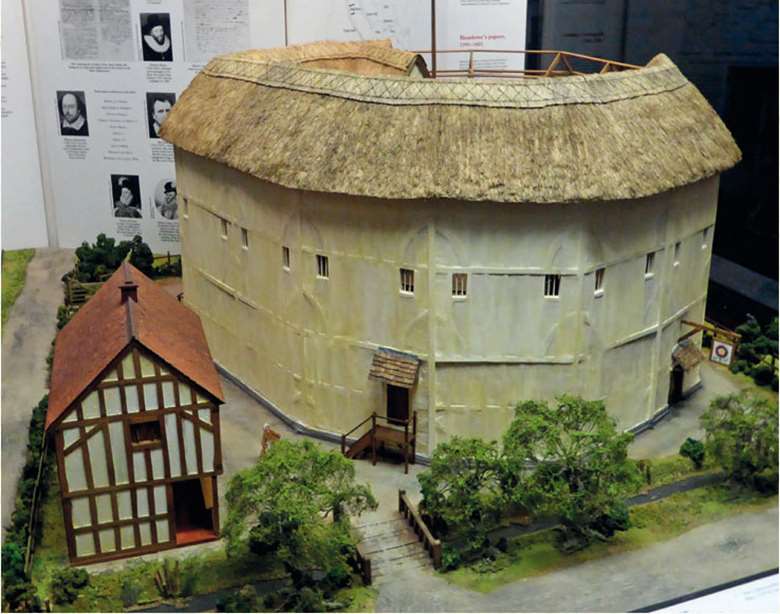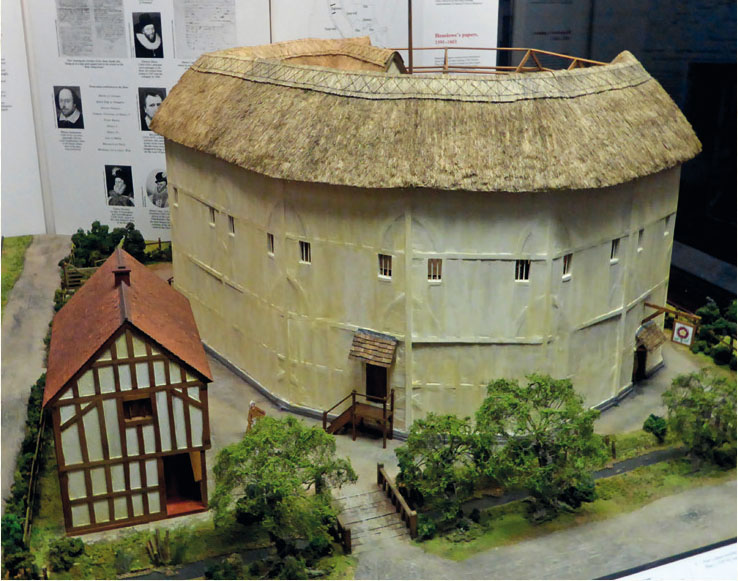Bardwatching: Spring Term 1 2020-21
Sarah Lambie
Tuesday, December 1, 2020
When it comes to the Bard, she's an inveterate twitcher. Sarah Lambie shares what she's spotted through her beady bardy binoculars

ETHAN DOYLE WHITE/CC-BY-SA-4.0
I'll put a girdle round about the earth in forty minutes…
As young people and teachers continue to adapt to new ways of teaching and learning, the RSC has been working with teachers and freelance artists to develop a range of new courses and resources to support teachers and young people learning about Shakespeare's plays in their classroom or at home.
On 25 November, a livestream from Stratford-upon-Avon covered ‘Teaching socially distanced Shakespeare in the classroom’. As the RSC starts to rehearse plays adhering to social distancing guidelines, actors and directors shared with drama practitioners everywhere how they are marking up rehearsal rooms, approaching warm-ups, tackling work on scenes and resolving staging dilemmas.
The event formed part of a week-long ‘Connected’ programme of learning and participation, running from Monday 23 – Friday 27 November with the RSC's Regional Partner Theatres and Associate Schools network. The week also featured sessions with children's author Malorie Blackman (Noughts & Crosses), Professor Ayanna Thompson from Arizona university, Darren Raymond from Intermission Youth, Musician Tarek Merchant, Movement Director Ingrid Mackinnon, and contributions from regional theatre partners and young people, exploring big ideas about identity, creativity and the relevance of Shakespeare's plays to our world today.
Selected performances from the company's Tales for Winter season are set to be filmed and made available on demand throughout the spring term, with supporting resources, and for students interested in finding out more about pursuing a career in theatre as well as the kinds of jobs that exist backstage, the RSC are producing a special series of films to help. Teachers and students are asked to send any in any questions, and the films will aim to answer them. www.rsc.org.uk
A rose by any other name…

© ETHAN DOYLE WHITE/CC-BY-SA-4.0
In 1989 archaeologists on a construction site in London discovered the remains of The Rose Playhouse, the first Elizabethan theatre on Bankside – built by Philip Henslowe a decade before The Globe, in 1589. The Rose had been home to William Shakespeare, Christopher Marlowe, and many others, but the site was in immediate danger of being destroyed to make room for a new office block. Theatrical luminaries Dame Peggy Ashcroft, Sir Ian McKellen, Dame Judi Dench and many more defied the bulldozers and demonstrated alongside citizens of Bankside and beyond to preserve the site.
On 21 November 2020, a livestreamed rehearsed reading of Rally for the Rose went out online. The new play, based on interviews from people who were at those protests in 1989, historical records from the Rose's archives, and documents from the governments of both Margaret Thatcher and Elizabeth I, was introduced with video testimonials from Sir Ian McKellen and Dame Judi Dench retelling their experiences of the battle to save The Rose.
Verbatim sections of the play are the result of a nearly two year-long interview and research process by writer/director Ben Prusiner and co-producer Fiona Munro, and the cast includes industry figures who took part in the original protests, including Dame Janet Suzman, Michael Pennington, Jeff Rawle, Lily Nichol, and Sir Simon Hughes.
To watch the video, go to www.youtube.com/watch?v=bpKrE4HXR_U
O, learn'd indeed were that astronomer that knew the stars as I his characters…
Guildhall School of Music & Drama is offering seven new evening short-courses for distance learning in January-March 2021, with one of the courses being ‘Intermediate Level Shakespeare: An Experiential Workshop’
The course will be an opportunity for participants to work with actor Mariah Gale on a toolbox to perfect existing Shakespeare techniques. The course will be divided between practical work, group discussion and lectures, ‘knowledge of the basics will be refreshed, and participants will dive into what it is that makes the sophisticated classical actor.’
Delivered across six sessions, this course is suited to those who feel confident in handling Shakespeare's language and are happy to be learning in a fast-paced learning environment; those considering acting training; or actors already in the industry who wish to refresh their skills. It is available only to those aged 18+, and will take place on Wednesday evenings from 27 January-3 March 2021, from 6.30-8.30pm, GMT.
Further details and fees can be found at gsmd.ac.uk/shortcourses

